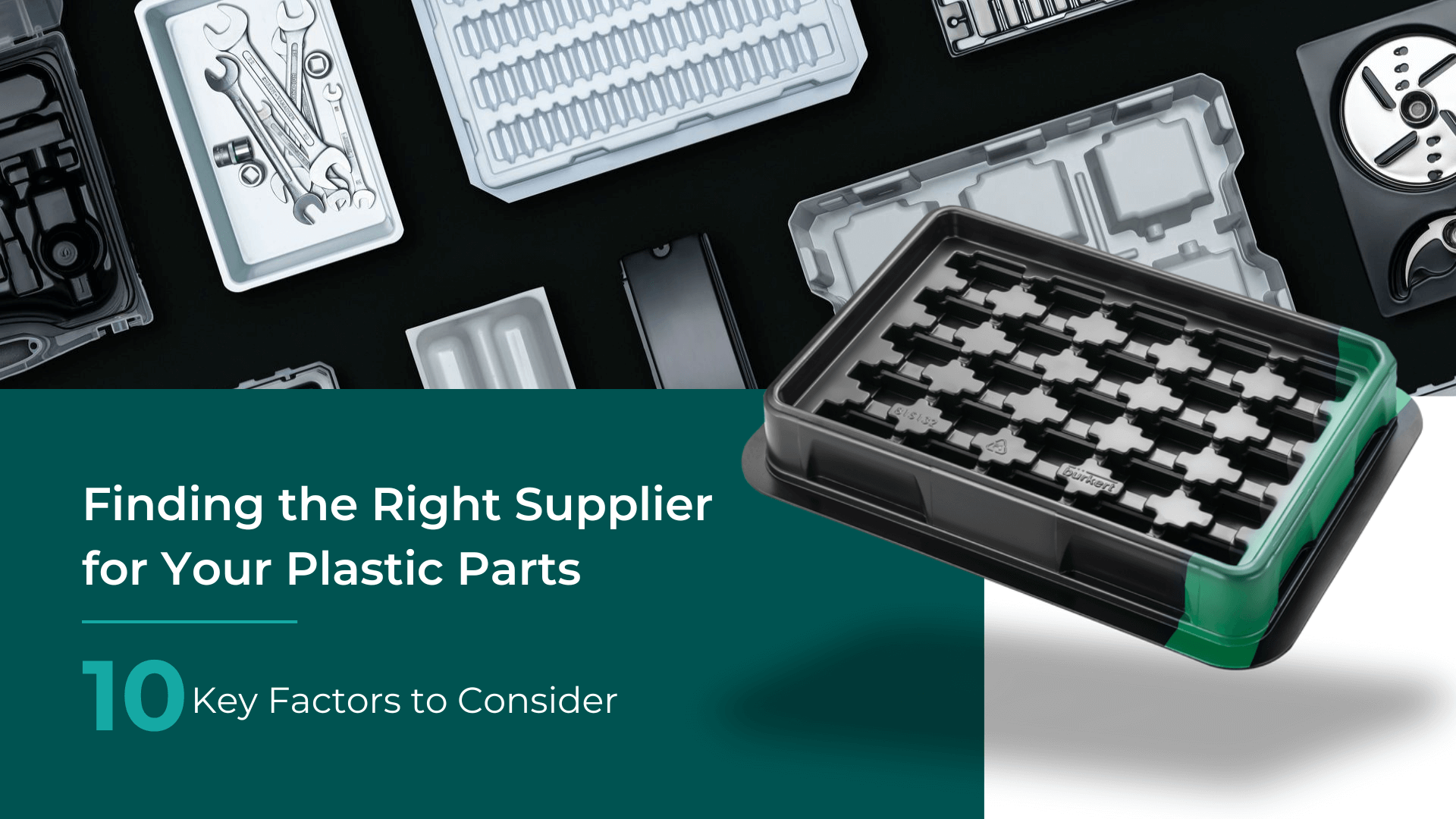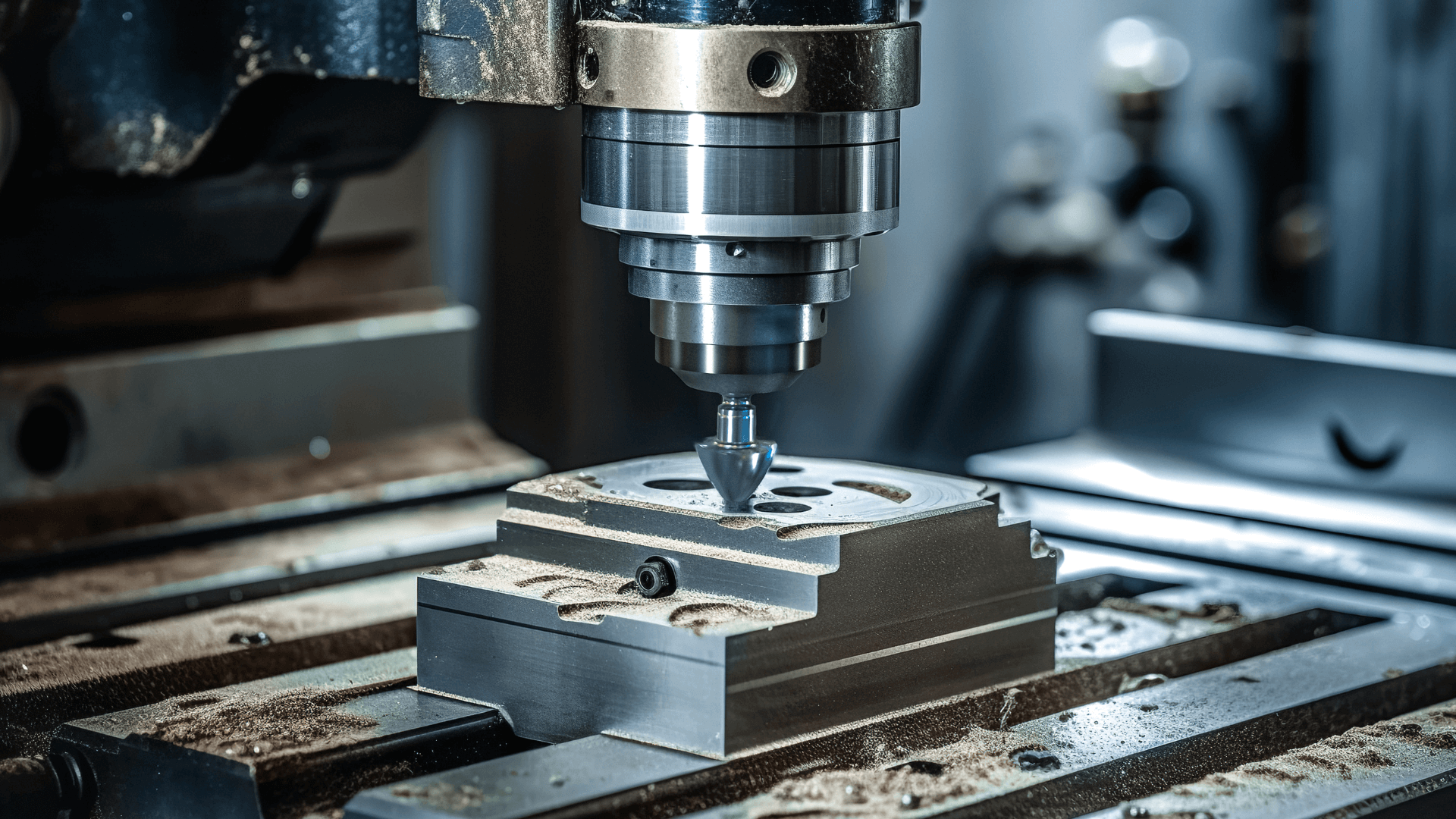Supplier Guide for Plastic Thermoformed Parts – 10 Key Factors That Matter
Choosing the right supplier for plastic thermoformed parts is crucial for the quality, efficiency, and cost-effectiveness of your production. Our 10 tips will show you what to look for when selecting a supplier.

Sarah Guaglianone
13. Januar 2026

Contents
10 Key Factors to Consider When Choosing a Supplier for Plastic Thermoformed Parts
Are you planning to switch suppliers or looking for the right partner for a new thermoforming project? Do you want to ensure you select the right manufacturer and avoid past mistakes? We have summarized the 10 most important criteria for choosing a supplier for plastic thermoformed parts.
1. Technological Abilities

Plastic thermoforming has many applications and end products. Ensure that the supplier has the right machine types (roll-fed, sheet-fed), machine components (frames, punching stations), and manufacturing processes (vacuum, pressure forming) for your product.
2. Material Availability
In plastic processing, selecting the right material and ensuring its availability are crucial. Determine whether the supplier is equipped for the material in question and has expertise in processing challenging materials (such as PP).
Does the supplier keep the material in stock, or does it need to be sourced separately? Some suppliers extrude their own plastic, making them independent of market prices and enabling faster, more efficient production.
3. Experience & Expertise
Plastic processing involves a wide range of material requirements, geometries, trimming and post-processing techniques, and quality standards. Industries such as medical and automotive have specific requirements and regulations, such as cleanroom manufacturing, that require specialized experience and expertise.
4. Professional, Long-Term Support
Plastic thermoformed parts are often developed in collaboration with the thermoformer or their toolmaking department based on your product requirements. As a non-expert in thermoforming, you need comprehensive information, professional advice, and guidance on potential risks and how to mitigate them.
5. Post-Processing Capabilities

Effective post-processing—ranging from milling and punching to assembly and surface finishing—is a key criterion when selecting a supplier. A good supplier has the necessary machines and expertise or a reliable network to outsource specific steps.
Since plastic parts are often classified as B- or C-parts, buyers should look for suppliers that offer all services from a single source. Otherwise, increased effort, delivery delays, and quality issues due to additional transport and coordination may arise.
6. Capacity & Lead Times
Planning reliability is essential. Check whether the supplier has:
- Sufficient machine capacity
- Reliable delivery schedules with regular updates
A reliable supplier provides the necessary production capacity and continuously expands it with a modern machine fleet as needed.
7. Price-Performance Ratio
Prices for plastic parts can vary significantly between suppliers, often due to opaque cost structures. Price differences may stem from factors such as machine compatibility, tool components, material availability, stock levels, and whether post-processing is done in-house or outsourced.
8. Quality Assurance

A supplier with a robust quality assurance system reduces complaints and eases your incoming goods inspection. Plastic parts require tooling and sample approval, where fast turnaround times and optimal quality are critical.
Does the supplier have the necessary ISO certifications for the product or target market? Do they have trained personnel, measurement tools, and machines to provide the required test reports?
9. Certifications & Tolerances
Pay special attention to certifications such as ISO 9001 and other industry-specific standards required for your end product or market. Maximum tolerances for manufacturing are especially important for technical plastic parts, such as housings and trays used in automated systems.
10. Security & Trust
Plastic thermoforming requires an investment in forming tools designed specifically for the supplier’s machinery. Therefore, choosing a supplier should be based on a long-term partnership built on security and trust. Check whether:
- The supplier is willing to sign an NDA
- Your 3D data and design drawings are adequately protected
Why formary is the Right Supplier for Your Plastic Parts
With formary, you gain access to a nationwide network of over 70 plastic thermoforming manufacturers in Germany. This supplier network provides you with unlimited production capacities and all thermoforming processes, including post-processing. The formary algorithm matches your product with the specialized supplier best suited for your needs.
You are 100% guaranteed:
- Industry-specific experience and certifications
- A machine fleet tailored to your requirements
- Full-service solutions for all post-processing steps
- Competitive pricing through cost-efficient manufacturing
- Product-specific expertise
- Production capacities that meet your required lead times and quantities
formary reduces your procurement effort for plastic parts through intelligent, fast, and efficient processes. Simply submit your request via our online configurator—we take care of the rest. Get your quote now!